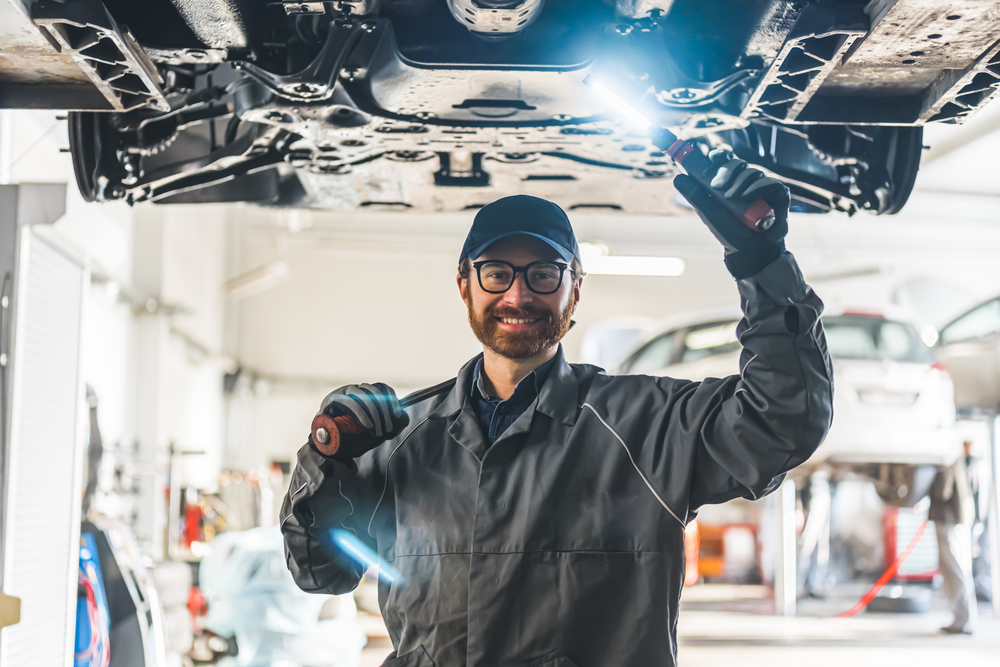Why you should not take your car to a general auto mechanic
Valerie Raskovic

To offer a comprehensive understanding of the advantages and disadvantages of entrusting your vehicle to a local car mechanic, it's crucial to first delineate the various stakeholders in this industry. Regardless of what type of shop you choose, the majority of these auto repair businesses employ ASE-certified as well as non-certified general auto technicians. While it might seem straightforward to suggest only trusting your car to shops that are staffed with certified technicians, our experience has shown that non-certified individuals can be just as knowledgeable and often possess extensive real-world qualifications that rival and, in some cases, surpass those of their certified counterparts.
Now that we understand that certification shouldn't be the sole deciding factor, what else should we consider? We need to evaluate each shop individually, as most of them can be categorized into one of the following three groups:
- General Mechanic
General vehicle technicians will usually have good basic knowledge of various car systems. They should be able to tackle most non-specialized routine militance tasks with proficiency. However, they will rely highly on third-party repair manuals when it comes to more advanced diagnostics and repairs. While referencing repair manuals is a common practice and helps estimate job time for billing purposes, problems arise when technicians lack experience with a specific year, make and model of vehicle. Limited by allocated book time and unfamiliarity with the vehicle, they may rush through the job, leading to errors such as using incorrect fasteners or forgetting to reinstall bolts, nuts and other vital hardware. Now, this is not completely indicative of a bad mechanic. You have to keep in mind they are working on something for the first time and they may be under a lot of pressure to complete the job within the allocated time span.
The major advantage of taking your vehicle to a general local mechanic is convenience, as they may be located closer to your home or place of business. Another benefit tends to be the price, as general mechanics do not tend to charge as much per hour as specialized shops.
- Specialized Mechanic
On the other hand, specialized mechanics have in-depth knowledge and experience in dealing with particular makes and models of vehicles, allowing them to provide more accurate diagnoses and generally higher quality repairs. This is not always true; however, it is important to keep in mind that the way modern-day automobiles are assembled is completely different and most makes and models now require specialized tools specific to the brand or the make as well as specialized diagnostic equipment for a specific make.
The investment in diagnostic software subscriptions and specialized tools can amount to hundreds of thousands of dollars for a car repair business. Typically, no single shop can afford to cater to every year, make and model of car. Without access to the requisite equipment and expertise for intricate repairs, a general repair shop may produce substandard results. In contrast, mechanic shops focusing on specific vehicle makes often prioritize investing in the latest diagnostic tools and equipment tailored to their serviced vehicles, guaranteeing accurate and effective repairs.
- Manufacturer-approved/Dealer Repair facility
You may think that if your vehicle is still under warranty, there is no better place to take your vehicle for repair than the dealer where they sell the same make and model car; however, that is not always true. The ugly truth of the matter is that due to an increase in warranty claims, some car manufacturers have been shaving diagnostic and repair time, not giving the repair facility adequate time to complete the job properly. The unfortunate part is that a lot of the manufacturers mandate that warranty repairs be completed by manufacturer-certified repair facilities, limiting the consumer’s option. Typically, a general repair shop should not be tasked to do any type of warranty work, as they may inadvertently void your warranty by using improper parts or methods, leaving you responsible for any future repair costs.
How can you guarantee proper warranty repair for your late-model vehicle? It requires a proactive approach in the repair process. You can inquire with the manufacturer-approved repair facility if they can realistically complete the repair within the manufacturer's allocated repair time. If they indicate there may be an overage, you have the option to cover the overage cost yourself or request the manufacturer to reimburse you after the bill is paid. Contacting the vehicle manufacturer directly can often yield better results with billing claims than dealing solely with the repair facility. Manufacturers are keen to uphold their brand image and avoid dissatisfied customers, so they may be more inclined to address billing issues directly.
Always keep in mind that a dealer/manufacturer-certified repair facility differs from a specialized mechanic. While the dealer facility boasts mechanics with expertise tailored to your specific year, make, and model and possesses all the necessary specialty tools, there are two key distinctions: price and manufacturer notification. Dealer repair facilities typically charge higher hourly rates. Additionally, even for out-of-pocket repairs, the manufacturer may be notified, which can have both positive and negative implications. For instance, in lemon law claims, having repairs documented by a manufacturer-certified repair facility is advantageous. Moreover, for the latest software updates, some specialized repair facilities may lack the license to perform the update, necessitating a visit to a certified manufacturer repair facility. In some cases, having work performed by a general shop or even a specialty shop specializing in that year, make and model of vehicle may actually void your warranty.
Now that we have identified the major pros and cons of all of the main types of car repair facilities, we still have not answered the question of which type of repair facility you should entrust with your vehicle. The answer to that question is not very cut and dry, unfortunately. With general maintenance such as oil changes and tire replacement and rotations, you may be better off going to your trusted local general mechanic. However, specialized problems require specialized solutions. With issues involving diagnostics, electrical malfunctions and major issues, you should consider taking your vehicle to a specialized mechanic instead.
Overall, while general auto mechanics may offer convenience, opting for a specialized mechanic ensures that your vehicle receives the expertise and attention it deserves and may save you a lot of frustration in the long run. We recommend always meeting and talking with the individual who will be working on your vehicle. Keep in mind that the primary indicators of a competent automotive technician are life experience, work ethic and attention to detail.
If you are thinking of buying a pre-owned car, we strongly urge you to do a full pre-purchase inspection (PPI) conducted by a trusted specialized vehicle technician prior to committing yourself to the purchase. You may also be able to save yourself some time and effort by generating a full vehicle history report. With a simple VIN check, you will be able to access a vast amount of information about the vehicle's past, such as major accidents, claims, repairs, recalls and much more…
Read more articles

